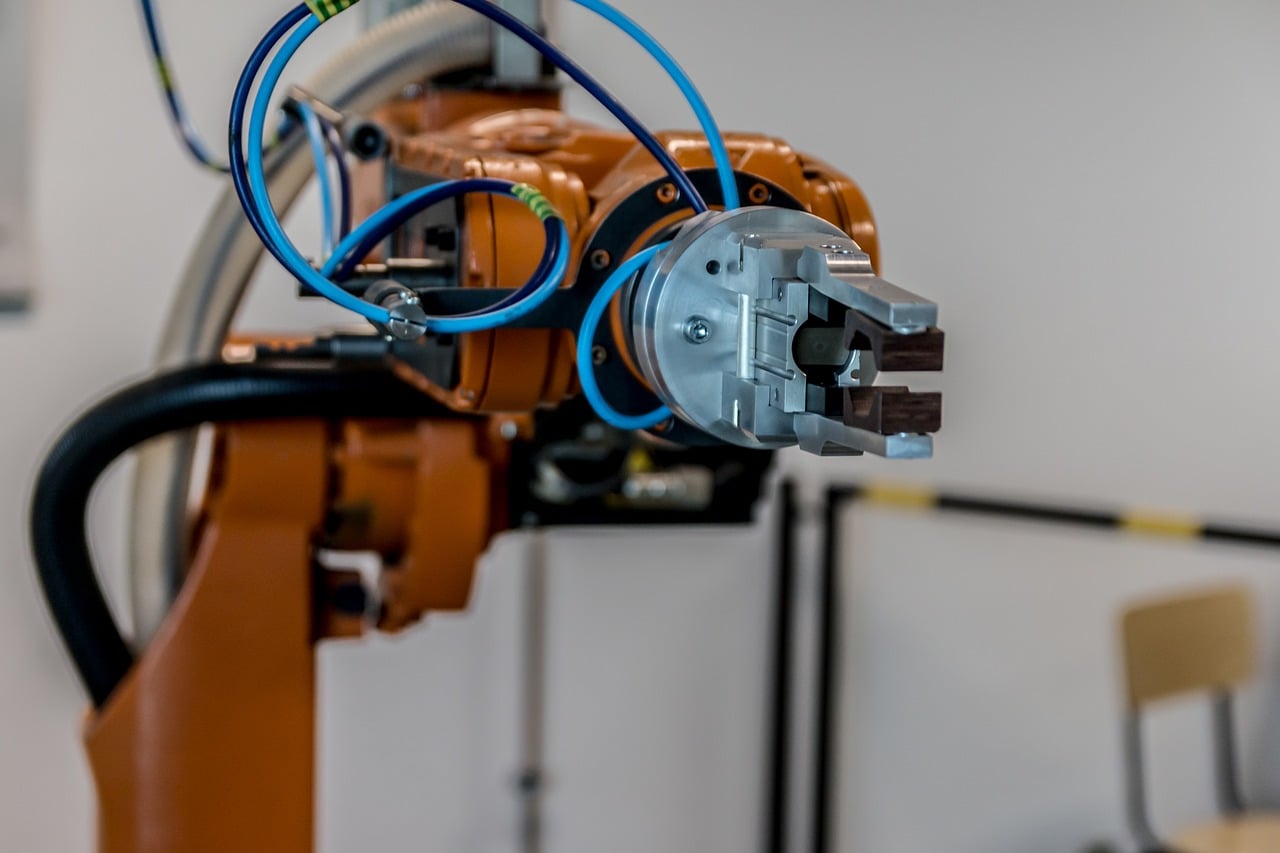The Path To Language-Parsing AI
Artificial Intelligence continues to march forward, albeit not always on the same path experts would have predicted ten or more years ago. Call the present standard “the fourth industrial revolution,” the “Internet of Things,” or “Industry 4.0,” beneath the buzzwords and social media tags is a thriving scientific culture exploring new developments. At their root level, deep learning algorithms, which are the most recent major development, owe their current success to Moore’s Law.
Moore’s Law states that the speed and efficiency of hardware roughly doubles every two years. The present levels of integrated circuits enable these deep learning algorithms. Before, tasks like language parsing or face and speech recognition were out of practical reach. Deep learning, sometimes called “black box AI,” is only possible because the hardware power now exists to throw a complex problem at an algorithm and tell it, in a nutshell, “keep trying solutions until one matches, then tell us how you did it.”
Q1 hedge fund letters, conference, scoops etc
From search engines like Google to database handling to translation engines, parsing human language has been a thorny AI problem that has only recently been solved. One such field ripe for this automation is business contracts and other related legally-binding documents. Automating the process of parsing these documents is a huge leap in business AI, and the company that's doing it is Evisort.
Evisort - AI Contract Management
Founded in 2016 by a joint venture of MIT researchers and Harvard Law experts, Evisort is a Silicon Valley start-up that has garnered the notice of speculators such as Amity Ventures, Village Global, and Serra Ventures. They've posted huge growth in 2018, and have announced new projects.
But first, what is AI contract management? The algorithm recognizes linguistic patterns in legal language, enabling it to parse contracts for details and eliminating the need for manual data entry. Originally conceived as a court document processor, the software has since broadened its scope to manage all a company's legal documents, such as invoices, purchase orders, or NDAs. Evisort also saw the need to merge data management with cloud storage, in order to to facilitate accessibility by multiple offices.
In a way, Evisort functions as a virtual secretary for office documents. In exactly the way one would ask for a brief synopsis of the terms, conditions, and dates in a contract, Evisort automates this task without a human needing to read the original document at all. Sales, vendor, employment, and financial contracts can now be scanned into a system which can digest the legalese and produce the numbers, names, and relevant clauses, which can then be organized into database entries and key-point summaries.
Smart Document Processing and the Data Deluge
As we can all appreciate, today's business environment comes with a hefty paperwork overhead. The legal field especially is one that has to deal with stacks of paperwork, which detail the terms and conditions of our transactions. Evisort founder Jerry Ting, with co-founders Amine Anoun and Jake Sussman, saw an open market in the legal profession, where reams of documents were still processed manually.
Data management is a field we will hear much more about in the coming years. As automated systems and our online world grow in complexity, our collective business generates terabytes of data that would take any person a lifetime to read.
This problem is called the "data deluge," a brand of information overload affecting the legal profession especially. On average, attorneys handle seventy documents per workday, up to 26K per year. Habits we've gleaned from the Internet contribute to this. As anyone with an auto-responder bot on their email account knows, machines are very good at producing large amounts of text. But it takes a human to read and comprehend it all. Evisort is taking a load off those people.
There's also a necessary gap between the formal language used for business and the everyday language we all use. This is the reason legal documents are so lengthy. The boilerplate text is a formalized method for clearly defining terms and conditions, which is necessary for every document should it become challenged in court. Vague documents risk being invalidated. Unfortunately, the language precision involved in formally defining legal terms does not make for easy human comprehension. Hence, document processing algorithms can crawl the boilerplate and produce simple yes-or-no answers for the average office worker.
The Road Forward For AI Language Parsing
One needn't think long to see where AI document processing can expand into many other fields. Government functions come to mind. The day may come when a senator can ask an AI algorithm to digest an eighty-page bill and produce the relevant summary to help him decide his vote. Doctors might be able to scan in a patient's medical history and pinpoint symptoms for a diagnosis or drug interaction issues in a patient's prescriptions. Of course, as our search queries on the Internet get more demanding, the parsing of data into digestible answers is also an obvious market.
Even the end user at home might become another potential market for systems like Evisort. For years now, every user is familiar with the process of scrolling down to the bottom of an EULA and clicking "accept." Who has time to read all that, right? Now, what if we had an AI EULA parser that digests the agreement into a summarized list of rights and responsibilities?
It took us years to teach computers how to write, and years more before they produced something worth reading. Now, we're beginning to teach computers how to read.






